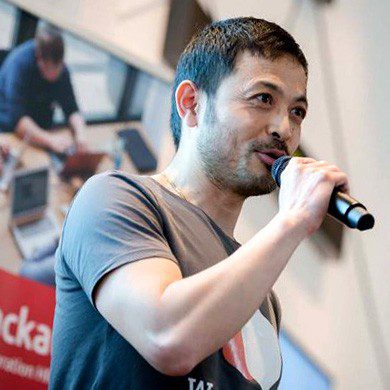Talent acquisition: What’s different in 2022?
Understand how the impact of the 'Great Resignation' has changed recruiting strategies and tactics for good.
What is different in 2022 and the trends you should be tapping into now, to make a difference to your TA strategy.
Unpack insights from iCIMS data discussed by UNLEASH and iCIMS earlier this year.




The ‘Great Resignation’ was, without doubt, one of the lead stories of 2021 and the topic of constant discussion across the global HR community. And there can be little doubt of its impact on talent acquisition trends and practices. So, what’s been tried and tested by leading organizations around the world that we can take with us into 2022 and arm us in the fight for the best talent?
In this now-on-demand session with iCIMS and UNLEASH we host industry experts, Hung Lee, Andrew Saidy, and Christy Spilka who share new data and personal insights to help you harness the latest Talent Acquisition strategies and tech.
Navigating the current talent shortage
The challenges of the current recruiting environment may seem daunting to many in the sphere of TA, however, it is important, as our industry experts did during this webinar session, to reflect on the accomplishments and strides made in the last two years or so.
From gaining (or cementing) a seat at the table as a consulted business partner to overhauling broken legacy processes and shining a spotlight on inefficiencies, and beginning to think how to transform and automate with the right, scalable tech have been enormous wins for the TA community that can’t go ignored. And, whilst it may seem tough as we’re in the thick of working out what tech is best, and are also suffering talent shortages and feeling stretched ourselves, the shift in mindset that things have to change and beginning to figure out how to do that best, is something to celebrate.
In the iCIMS “2022 Workforce Report“, where they gathered insights from 1,000 US and 500 UK senior HR and TA leaders, there are some stark and humbling statistics that demonstrate just how important TA is to the business of today, and why these step-changes genuinely matter:
- 83% said turnover has had a negative impact on their business
- 92% of organizations won’t meet their goals without the right talent
- 36% of organizations are proactively nurturing talent pipelines
We also took the temperature of our 433 HR leader webinar registrants as to how they’re trying to navigate the current talent shortage within their organizations:
- 15% are hiring internationally in remote positions
- 18% are looking at internal mobility and upskilling existing employees
- 20% are enhancing their career sites and recruitment tech capabilities
- 24% are improving the candidate experience as a whole
- 23% are engaging with more diverse talent pools
The future of Talent Acquisition
Normalizing nurturing: You need a gardener, apparently?
Every competitive talent acquisition model will need to bring nurturing into its wheelhouse. Whilst the current state of play is that this isn’t the norm and, as Hung Lee considered, even Marketing doesn’t appear to have these skills in abundance, it doesn’t mean this shouldn’t become a reality for TA. The set of skills to nurture talent might not be native to recruiters, but it’s something that the panelists agreed on whereby it needs to become part of the equation to do better and be better.
Christy Spilka discussed how nurturing talent should be a muscle that we build, that then, once the muscle memory gets going, becomes organic. The question for each organization to work out for themselves, is how they structure this and what are the technical processes that feed into making this a reality?
Nurturing is circular, it’s like a garden. If you treated a garden like a project, it’s going to have catastrophic failure if you stop taking care of it. What nurture is, is constant fertilizing, constantly looking after the soil, constantly monitoring the environment, and curating it – pulling the weeds out, nurturing the plants that aren’t strong enough at this point and growing them up. It’s a totally different skillset.
Hung Lee, Curator, Recruiting Brainfood
It’s not just the candidate experience that’s important, it’s how you report on this too
Considering the candidate throughout your TA processes is vital to remain competitive. Christy explained how they use solutions like iCIMS Talent Cloud‘s video capabilities to make the lives of their TA leaders easier and to provide amazing, engaging experiences for candidates. The shift to hybrid and remote working for most organizations has meant that the analog processes in recruitment, are now entirely digital.
Whilst the interview process and the questions we ask aren’t changing, the vehicle we use to interview has changed.
Christy Spilka, VP Talent Acquisition, iCIMS
From the practitioner lens, very much on the frontlines, Andrew Saidy from Ubisoft explained how they recently launched a new CRM platform and are also in the process of overhauling their current candidate survey portal to get better feedback. The aim of these transformations is to gain data that can be turned into actionable feedback for the organization, whether that’s training hiring managers, posting better job descriptions – overall aiming to enhance the candidate experience, based on data, from end-to-end.
Evidently from both Christy and Andrew’s experiences, this digital shift has provided the means to have data on more areas of the candidate experience than ever before. What’s more, instead of the hours worth of searching and analyzing data from different platforms, places, and people, now with comprehensive CRM platforms firmly cemented, “I just screenshot, pop it in a PowerPoint and I’m done,” said Christy, as an example of the ease in which they can now report and share up-to-date information in real-time. Having this sort of transparency around people data can really empower recruiters, removing constraints and pressures felt through a productivity drain of over-reporting, instead it should be accessible, publicly throughout an organization and be intuitive to navigate around.
Director of Internal Mobility
The attention around internal mobility and the benefit of this to combat talent shortages has been unavoidable, even here at UNLEASH. And whilst conversations around Skills Frameworks and People Analytics have started to unpack what we actually need in order to recognize and capture (with usable intelligible data), the skills, capabilities, and future potential of our employees, the next step is still up for grabs.
The current mentality of today means that other than planning, little work has actually been done to start actioning real, impactful internal mobility. Recruiters generally don’t do any internal hiring – it’s left to the employee to find opportunities themselves and put themselves forward for them. Ultimately, it’s not anybody’s job.
Yet as Hung pointed out, it’s a huge component of work, that has the potential to provide as much as the missions to nurture and source bigger and better talent pools – especially in the face of organizations with 10, 20, 100,000 plus employees. So why, as of yet, is this critical priority in the face of severe talent shortage, falling short of any form of action? If you want to get ahead of your competitors and be agile and future-ready, there needs to be serious thought as to what happens when external recruiting isn’t so important, when the current state of play gets rectified.
Having a “Director of Internal Mobility” may seem alien in today’s TA landscape, but is it so crazy? Hung considered that as we are expanding at the front through nurturing and sourcing – upping our social capital and creating those synaptic links that can be leaned on in the future – why would we not formalize the process and workload to be expansive from within? When organizations have tools like iCIMS Opportunity Marketplace they can help connect talent to new opportunities and increase employee retention – but there needs to be some thought behind the strategy and function that undertakes these sorts of initiatives.
Scroll up now to check out the on-demand recording and get even more insights from our awesome industry experts.
Watch On Demand
"*" indicates required fields
Contact Us
"*" indicates required fields
Partner with UNLEASH
"*" indicates required fields
